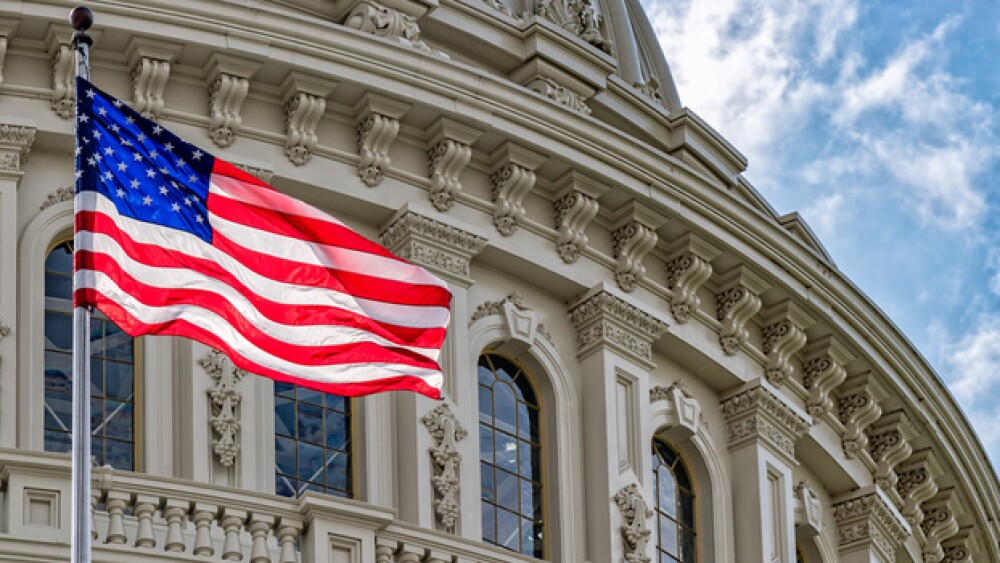The bill would curb the pricing of insulin by capping monthly co-pays for diabetics who use both commercial insurance plans, as well as the government-backed Medicare.
Andrea Izzotti/Shutterstock
A bipartisan bill introduced by the leaders of the Senate Diabetes Caucus aims to curb the pricing of life-saving insulin by capping monthly co-pays for diabetics who use both commercial insurance plans, as well as the government-backed Medicare.
Sens. Susan Collins, a Maine Republican, and Jeanne Shaheen, a New Hampshire Democrat, unveiled a bill that aims to lower insulin prices to the 2021 net Medicare rates. The bill, dubbed the “Improving Needed Safeguards for Users of Lifesaving Insulin Now Act’’ or the “INSULIN Act” accomplishes this by blocking pharmacy benefits managers (PBMs) from accepting drug rebates or other discounts, Roll Call reported. The rebates and discounts received by pharmacy benefits managers, a percentage of list prices, have been blamed for higher drug prices. Additionally, the bipartisan bill will cap insulin prices at $35 or 25 percent of the list price per month in commercial and Medicare Part D plans, according to the report.
Capping insulin prices is a major healthcare initiative from the White House. In his State of the Union Address earlier this year, President Joe Biden called for a $35 cap on insulin costs that are provided by insurance programs. The U.S. House of Representatives responded to the president’s call and passed the “Affordable Insulin Now Act,” which requires private groups and individual insurance plans to cap insulin costs at $35 per month. Additionally, the legislation calls for the insurance programs to cover at least one of the dosage forms, either vial or pen, and insulin type, rapid-acting, short-acting, intermediate-acting and long-acting for that price.
Insulin is one of the most expensive categories of drugs purchased by private and government health care payers, the senators said. The price has only continued to rise. According to a 2020 report from the U.S. Department of Health, the average gross manufacturer price for a standard unit of insulin in 2018 was more than 10 times the price of insulin in 32 other countries and around eight times higher than all other countries. Citing a different report from the Health Care Cost Institute, the senators said an average 40-day supply of insulin rose from $344 in 2012 to $666 in 2016.
Some insulin producers have cut prices for their life-saving medications. Two years ago, Eli Lilly and Sanofi, two of the largest insulin manufacturers in the world, created assistance programs that help patients afford their medications. NovoNordisk, another top global insulin producer, also offers financial assistance programs for patients.
“Access to insulin is a life-or-death concern for many of the millions of Americans living with diabetes. Lowering skyrocketing costs to ensure this critical medicine is never out of reach is an urgent need and a crucial bipartisan priority in Congress. We’ve been working for years to find common ground to get this done and we now have an opportunity to get bipartisan legislation over the finish line and ensure that patients with diabetes and their families are no longer burdened with insurmountable costs for this critical, life-saving medication,” Shaheen and Collins said in a joint statement.
The pharmaceutical industry and its powerful lobbying organization PhRMA has typically pointed the finger at the insurance industry and PBMs for the high costs of drugs. This month, the Federal Trade Commission unanimously agreed to keep a close eye on PBMs and how they price drugs, including insulin. When the FTC announced its plan, the commission particularly honed in on the rising insulin prices, which have forced many diabetes patients to ration their medications. The FTC said the list price for a year’s supply of insulin has risen to nearly $6,000. Out-of-pocket costs averaged $1,288 for uninsured patients and $613 for insured patients, as of 2017, the commission said.
Collins and Shaheen are calling on Senate leaders to bring their bill to the floor as quickly as possible for debate and a vote. However, Roll Call noted that the two senators are still working with the Congressional Budget Office to determine the projected cost of the bill.
If the bill is brought to the floor sooner, rather than later, with Congressional elections set for the fall, it is unknown how many Republicans will back the legislation. Roll Call noted that the House bill received minimal support from the GOP.





